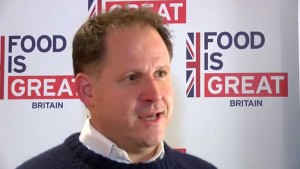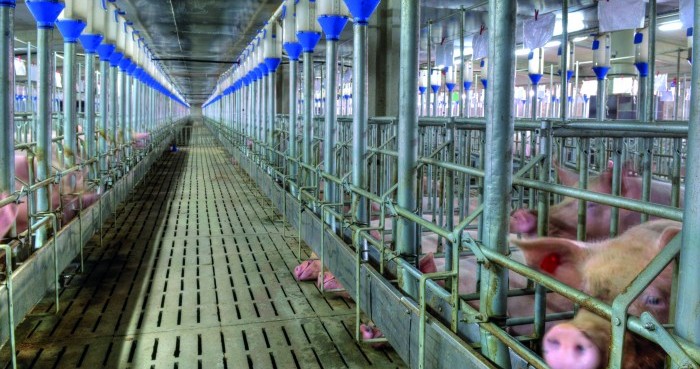In the latest issue of Pig World, Alistair Driver took a close look at the proposals in the first part of Henry Dimbleby’s National Food Strategy to address concerns over food import standards
The Government must deploy a ‘gold standard level of scrutiny’ over food standards as it formulates new trade deals, according to the first part of a blueprint for future food policy in the UK.
In the absence of anything tangible so far from Government on how it will deliver its promise to protect UK food standards in future trade deals, some interesting insight into how it could work in practice finally emerged with the publication of part one of Henry Dimbleby’s National Food Strategy.
The report reiterated that UK farmers have some of the highest environmental and animal welfare standards in the world. It said there was ‘justifiable concern about opening up our markets to cheaper, low-standard imports which would undercut our own producers and make a nonsense of our progressive farming policies’.
The report highlighted some of the differences between UK and US production standards, including, for pigs, the use of sow stalls in 41 US states and of feed additive ractopamine in 60-80% of US pigs.
But it rejected any ‘blanket legislation’ requiring other countries to meet our own food guidelines, as proposed by some MPs as the Agriculture Bill makes its way through Parliament, saying this would make it ‘nigh-on impossible’ to secure trade deals.
“We already import many food products from the EU that don’t meet UK standards. A blanket ban would make it impossible to continue trading even with this most closely aligned of partners,” the report said.
A ‘subtler mechanism’ could be developed in which the Government should only agree to cut tariffs in new trade deals on products which meet our ‘core standards’. Those that don’t would attract the full tariff.
Verification programmes, along the lines of those currently operating in the US to enable American farmers to sell non-hormone-treated beef to the EU, should be established so producers wishing to sell to the UK can prove they meet these minimum standards. These should cover animal welfare and environmental and, in some cases, climate concerns.
The core standards, the report added, should be defined by the newly formed Trade and Agriculture Commission, set up to advise the Government on future trade deals, including ensuring that animal welfare and environmental standards are not undermined.

The report also called on the Government to adopt a statutory responsibility to commission and publish an independent report on any proposed trade agreements, covering issues like economic productivity, food safety and public health, the environment and climate change, human rights and animal welfare. This assessment would be presented alongside a government response when any final trade treaty is laid before Parliament.
Parliament should also be given the time to properly scrutinise any new trade deal, including time for relevant select committees to produce reports on a deal and to allow a Commons debate.
Mr Dimbleby’s report insisted the policy would still be a ‘free trade policy’, allowing all the products we currently import to continue coming into the UK, with more added, while also continuing tariff and quota-free trade with the EU.
“But it would also allow us to get new deals over the line without having to surrender our standards to the pressures of realpolitik,” it said.
An acceptable compromise?
While the recommendations offer tangible insight into how the Government might honour its commitments on food standards, they raise a number of questions.
The extra scrutiny would make an already difficult process of finalising trade deals a longer and potentially even more difficult process, particularly if those scrutinising the deals make additional demands. After all, the US has been clear from the start in its demands for the removal of all the EU’s current barriers to US food imports. Whether it would buy into the dual tariff plan and certification process is questionable.
The question of how much power the UK Government would be prepared to cede to Parliament and others scrutinising the deal also remains to be seen, given the huge importance and urgency attached to securing new deals.
From the industry’s perspective, while the measures would offer some offer protection, they would not prevent lower standard imports altogether. In theory, they would just attract the full tariff – and given the huge cost differences between the UK and US, the trade might still be economic for exporters, depending on the tariff rates applied.
Is this a compromise any party would buy?




